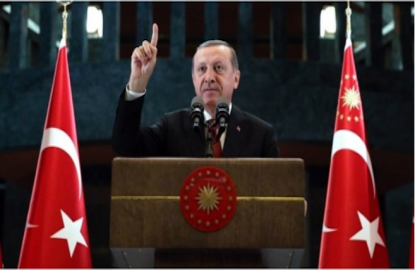State of Emergency was announced after the unsuccessful coup attempt on July 15, 2016, which was defined as “Grace of God” by president Erdoğan. During the following two years, 36 statutory decrees were issued. At least 126.000 people were discharged from their jobs and at least 220.000 were arrested.
All of the institutions, especially judiciary, armed forces, intelligence services, universities, media; structures were changed and everything became dependent to just one man, just one sound.
The law draft that would effectively extend the ‘State of Emergency’ for at least another three years has passed the GNAT on 25 July 2018. With amendments made in many law articles including those within the Turkish Anti-Terror Law, the Law on Meetings and Demonstrations and the Law for Provincial Administration; which further conflict many provisions guaranteed in the Constitution, the State of Emergency will effectively continue, however informal. Some amendments in the new regulation are as following:
– With a temporary clause added to the Turkish Anti-Terror Law, the period of custody, which was 24 hours in ordinary circumstances, was increased to 48 hours. (During the SoE it was 30 days, then reduced to 7) The period will be 4 days in mass crimes and will be able to be extended for up to 12 days.
– With an amendment on the Law for Provincial Administration, governors, who already possessed the authority to declare curfews and ban protests, are now assigned further authorities such as controlling/banning entrances and exits to provinces, bringing individual restrictions as well as deciding where, when and how people may wander around.
– Dismissals in public service will continue for 3 more years. Authority on such dismissals, made with Statutory Decrees issued within the State of Emergency, was assigned directly to the ministries. Members of the judiciary will be able to be dismissed by the Council of Judges and Prosecutors (HSK), academics by the Council of Higher Education (YÖK) and other personnel with no relation to a ministry by an authorized officer.
– With an amendment made on the Law on Meetings and Demonstrations, restrictions involving vague descriptions with no definitions in the law, such as “disruption of public peace” was added another term, that states, “not making daily lives of citizens excessively and unbearably difficult.” Such vague statements, which do not correspond to any definition in the law, make banning the use of the right to meeting and demonstration even easier.
– With amendments made on the Code of Criminal Procedure;
Repeating custody procedures within the same file (which could previously only be ordered by the Prosecutor’s Office) will be able to be ordered by the security forces with a written warrant.
Objections against arrest warrants, which previously concluded within three days, will now be able to be processed for up to 30 days; monitoring on arrests, which were previously conducted monthly, will now be conducted once in 90 days.
Confiscation and examination of computers and digital data, which could previously only be made with a court order, can now be ordered by prosecutors.
– With an amendment on the Code of Administrative Procedure, prosecutions will be able to be renewed through friendly settlements within applications at the European Court of Human Rights or through one-sided declarations. Thus, decrees of violation and sanctions to be issued by the European Court of Human Rights will be able to be postponed and/or avoided.
– With an amendment on the Law on the State Intelligence Service (MIT), the Intelligence Service was excluded from the scope of the Right to Information Law.
… and a “Good News”
This statute named “Monument of Human Rights” sits is in Ankara, Yüksel street since 1990 and it is the center of peaceful demonstrations. But it was under arrest for 14 months, because two victims of Statutory Decrees Nuriye Gülmen and Semih Özakça started a protest action demanding their jobs back and police could not prevent.
On July 24, 2018, police took the barriers and she was free again. She did not escape, still sitting there, in her eternal silence. But grandchildren of the Hodja (Legendary humorist from 13th Century) can never be kept silent.

